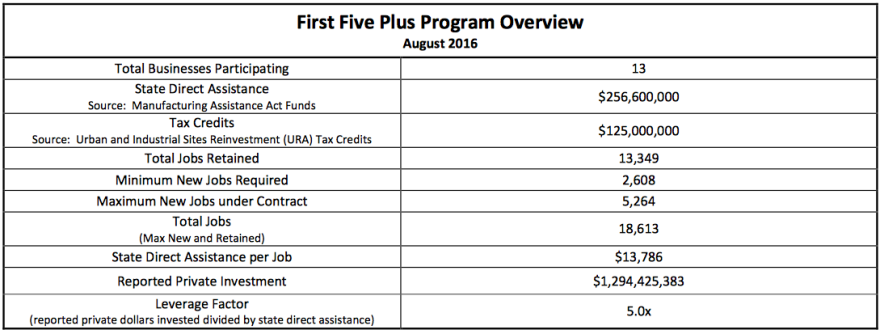The analysis claims the program has created 3,757 jobs, and retained a further 13,349.
Governor Dannel Malloy's office released a report that it said proves the controversial First Five incentive program has been a success for the state’s economy.
Upwards of $256 million has been given in direct state aid to 13 big corporations under the program.
A new analysis claims the program has created 3,757 jobs, and retained a further 13,349. It also said the state assistance has leveraged more than a billion dollars in private investment by the companies.
The program was initiated in 2011, as the state struggled to recover from the Great Recession. Malloy wants to see what's now dubbed "First Five Plus" continue stimulating a sluggish economy. "My thoughts in 2011 was that this recovery would be like every other recovery since the Second World War, and clearly it has not been," he told a news conference on Tuesday. "So we’ll keep using the tools that we have, we’ll develop new tools when they’re needed, and we’ll be careful with people’s money."

But watchdogs who track the tax breaks given to corporations have criticized the policy as corporate welfare in the past. Now they’d like to see more detail on its success.
"We agree that it’s important to bring high-wage high-skill jobs to the state, so we understand that investments in bringing these types of jobs is important," said Derek Thomas, a fiscal policy fellow for Connecticut Voices for Children. "But one thing we noticed was missing from the report was what kind of wages and benefits these jobs were being provided."
So far average cost of each job created or safeguarded by the program is $13,786 in taxpayer-funded assistance.





